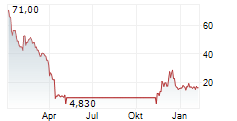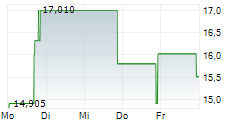- Oral PL7737 monotherapy produced rapid and significant weight loss after just 4 days of treatment
- Combination of oral PL7737 and tirzepatide resulted in additive weight loss effects
- IND-enabling toxicology program ongoing
- IND submission planned for 4Q2025; Clinical data expected in 1H2026
PRINCETON, N.J., July 15, 2025 /PRNewswire/ -- Palatin Technologies, Inc. (OTCQB: PTNT), a biopharmaceutical company developing first-in-class medicines based on molecules that modulate the activity of the melanocortin receptor system, today announced strong preclinical results for PL7737, an oral selective melanocortin-4 receptor (MC4R) agonist, showing effectiveness in rodent models of obesity.
The preclinical study evaluated the weight loss effects of three oral doses of PL7737, both alone and in combination with tirzepatide (a GLP-1 /GIP agonist), in a diet-induced obese (DIO) rat model. After 4 days of treatment, all results were statistically significant compared to vehicle control:
- PL7737 - Middle Dose: 5% weight loss
- PL7737 - High Dose: 10% weight loss
- Tirzepatide Alone: 5% weight loss
- PL7737 Middle Dose + Tirzepatide: 11% weight loss
- PL7737 High Dose + Tirzepatide: 15% weight loss
"The rapid and significant weight loss seen with oral PL7737, both as monotherapy and in combination with tirzepatide in this established animal model, is impressive and suggests the potential for meaningful weight reduction in humans," said Carl Spana, Ph.D., President and CEO of Palatin. "We are also evaluating PL7737 as a treatment for hypothalamic obesity and plan to begin a Phase 1 single- and multiple-ascending dose (SAD/MAD) clinical trial in late 2025, with data expected in the first half of 2026."
Dr. Spana continued, "Palatin is developing a strong pipeline of novel MC4R agonists to treat obesity. Unlike incretin-based therapies, MC4R agonists offer a unique mechanism of action. In addition to oral PL7737, we have developed several selective peptide MC4R agonists designed for weekly subcutaneous administration, with no observed hyperpigmentation. Our deep expertise in melanocortin research allows us to efficiently advance both oral PL7737 and a long-acting peptide candidate, providing flexibility to target both general obesity and rare forms of the disease. We expect Phase 1 data for both programs in the first half of 2026."
Earlier this year, Palatin reported positive Phase 2 results from a study evaluating the combination of bremelanotide (an MC4R agonist) and tirzepatide (a GLP-1 /GIP agonist). The study met its primary endpoint over the 8-week treatment period with highly statistically significant results. Additionally, Palatin announced that the FDA granted orphan drug designation to PL7737 for the treatment of leptin receptor (LEPR) deficiency-related obesity, a rare genetic disorder that disrupts MC4R signaling due to mutations in the LEPR gene. The leptin-melanocortin pathway, located in the hypothalamus, regulates hunger, energy balance, and body weight. Individuals with LEPR deficiency often experience constant, intense hunger from a young age, leading to severe early-onset obesity. PL7737, an MC4R agonist, is designed to restore this disrupted signaling.
Melanocortin-4 Receptor Agonists Effect on Obesity
Hypothalamic neurons expressing the melanocortin-4 receptor (MC4R) play a central role in regulating stored energy, food intake, and body weight. Genetic mutations that inhibit signaling through the MC4R pathway lead to hyperphagia, decreased energy expenditure and early-onset obesity; such mutations have been identified as the cause of several rare genetic obesity disorders. MC4R agonism represents an attractive target for potential obesity treatments.
About Hypothalamic Obesity
Hypothalamic obesity is a rare and severe form of obesity caused by dysfunction or damage to the hypothalamus, the region of the brain that regulates appetite, satiety, and energy balance. Hypothalamic obesity can occur as an acquired condition, most commonly after surgery or radiation therapy for brain tumors such as craniopharyngioma, or as a congenital disorder associated with genetic syndromes and developmental abnormalities affecting hypothalamic function. Individuals with hypothalamic obesity typically experience rapid, excessive weight gain, uncontrollable hunger, and profound metabolic disturbances that are resistant to conventional diet, exercise, and behavioral interventions. There are currently no approved pharmacologic treatments specifically indicated for hypothalamic obesity, representing a significant unmet medical need.
About Melanocortin Receptor Agonists
The melanocortin receptor ("MCR") system has effects on inflammation, immune system responses, metabolism, food intake, and sexual function. There are five melanocortin receptors, MC1R through MC5R. Modulation of these receptors, through use of receptor-specific agonists, which activate receptor function, or receptor-specific antagonists, which block receptor function, can have medically significant pharmacological effects.
About Palatin
Palatin is a biopharmaceutical company developing first-in-class medicines based on molecules that modulate the activity of the melanocortin receptor systems, with targeted, receptor-specific product candidates for the treatment of diseases with significant unmet medical need and commercial potential. Palatin's strategy is to develop products and then form marketing collaborations with industry leaders to maximize their commercial potential. For additional information regarding Palatin, please visit Palatin's website at www.Palatin.com and follow Palatin on Twitter at @PalatinTech.
Forward-looking Statements
Statements in this press release that are not historical facts, including statements about future expectations of Palatin Technologies, Inc., such as statements about Palatin products in development, clinical trial results, potential actions by regulatory agencies, regulatory plans, development programs, proposed indications for product candidates, and market potential for product candidates are "forward-looking statements" within the meaning of Section 27A of the Securities Act of 1933, Section 21E of the Securities Exchange Act of 1934 and as that term is defined in the Private Securities Litigation Reform Act of 1995. Palatin intends that such forward-looking statements be subject to the safe harbors created thereby. Such forward-looking statements involve known and unknown risks, uncertainties and other factors that could cause Palatin's actual results to be materially different from its historical results or from any results expressed or implied by such forward-looking statements. Palatin's actual results may differ materially from those discussed in the forward-looking statements for reasons including, but not limited to, results of clinical trials, regulatory actions by the FDA and other regulatory and the need for regulatory approvals, Palatin's ability to fund development of its technology and establish and successfully complete clinical trials, the length of time and cost required to complete clinical trials and submit applications for regulatory approvals, products developed by competing pharmaceutical, biopharmaceutical and biotechnology companies, commercial acceptance of Palatin's products, and other factors discussed in Palatin's periodic filings with the Securities and Exchange Commission. Palatin is not responsible for updating events that occur after the date of this press release.
Palatin Technologies® is a registered trademark of Palatin Technologies, Inc.
SOURCE Palatin Technologies, Inc.



